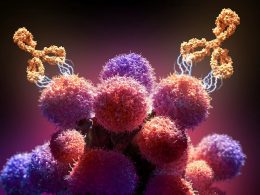Understanding Postprandial Hypotension
Postprandial hypotension, commonly referred to as feeling Dizzy After Eating, is a phenomenon characterized by a sudden drop in blood pressure after a meal. This condition primarily affects individuals, especially older adults, with certain predisposing factors such as autonomic nervous system dysfunction or other underlying health conditions. Understanding the mechanisms behind postprandial hypotension is crucial in managing and mitigating its symptoms. More About (Sleeping Paralysis)

Causes and Triggers
Autonomic Dysfunction
One of the primary causes of postprandial hypotension is dysfunction in the autonomic nervous system, which regulates involuntary bodily functions such as heart rate and blood pressure. When this system malfunctions, it can lead to inadequate adjustments in blood pressure following a meal, resulting in dizziness and lightheadedness.
Meal Composition
Certain meal components, such as high carbohydrate or high-fat content, can exacerbate postprandial hypotension. These foods trigger a significant release of insulin, causing a rapid uptake of glucose into cells and subsequent vasodilation, which further lowers blood pressure.
Aging
As individuals age, the body’s ability to regulate blood pressure diminishes, making older adults more susceptible to postprandial hypotension. Age-related changes in blood vessel elasticity and autonomic nervous system function contribute to this increased risk.
Symptoms and Impact
Dizziness and Lightheadedness
The hallmark symptom of postprandial hypotension is Dizzy After Eating or lightheaded after eating. This sensation typically occurs within 30 to 60 minutes after a meal and may persist for several hours.
Syncope
In severe cases, postprandial hypotension can lead to syncope, or fainting, due to a sudden and significant drop in blood pressure. Syncope poses risks of injury, particularly in older adults who may fall during fainting episodes. Dizzy After Eating
Impaired Cognitive Function
Reduced blood flow to the brain during postprandial hypotension can result in impaired cognitive function, including difficulty concentrating, confusion, and memory problems.
Managing Postprandial Hypotension
Dietary Modifications
Making dietary adjustments can help manage postprandial hypotension. Consuming smaller, more frequent meals rather than large, heavy meals can prevent drastic fluctuations in blood pressure. Additionally, opting for meals with a balanced composition of carbohydrates, proteins, and healthy fats can help stabilize blood sugar levels and minimize postprandial hypotension.
Physical Activity
Engaging in light physical activity, such as taking a short walk after meals, can stimulate blood flow and prevent blood pressure drops. However, vigorous exercise immediately following a meal should be avoided, as it can divert blood flow away from the digestive system and exacerbate symptoms.
Medication Management
In some cases, healthcare providers may prescribe medications to help manage postprandial hypotension. These may include alpha-adrenergic agonists to constrict blood vessels or acetylcholinesterase inhibitors to improve autonomic nervous system function.

Dietary Recommendations
| Aspect | Recommendation |
|---|---|
| Meal Size | Opt for smaller, more frequent meals |
| Macronutrient Ratio | Aim for a balanced composition of carbohydrates, proteins, and healthy fats |
| Meal Timing | Avoid heavy meals before activities that require prolonged periods of standing |
| Hydration | Stay adequately hydrated throughout the day |
| Alcohol | Limit alcohol consumption, as it can exacerbate postprandial hypotension symptoms |
Conclusion
Postprandial hypotension can significantly impact an individual’s quality of life, causing discomfort and impairing daily functioning. By understanding the underlying causes and triggers of this condition and implementing appropriate management strategies, individuals can alleviate symptoms and minimize the risk of complications. If you frequently experience dizziness after eating, consult with a healthcare professional for proper evaluation and personalized recommendations.












